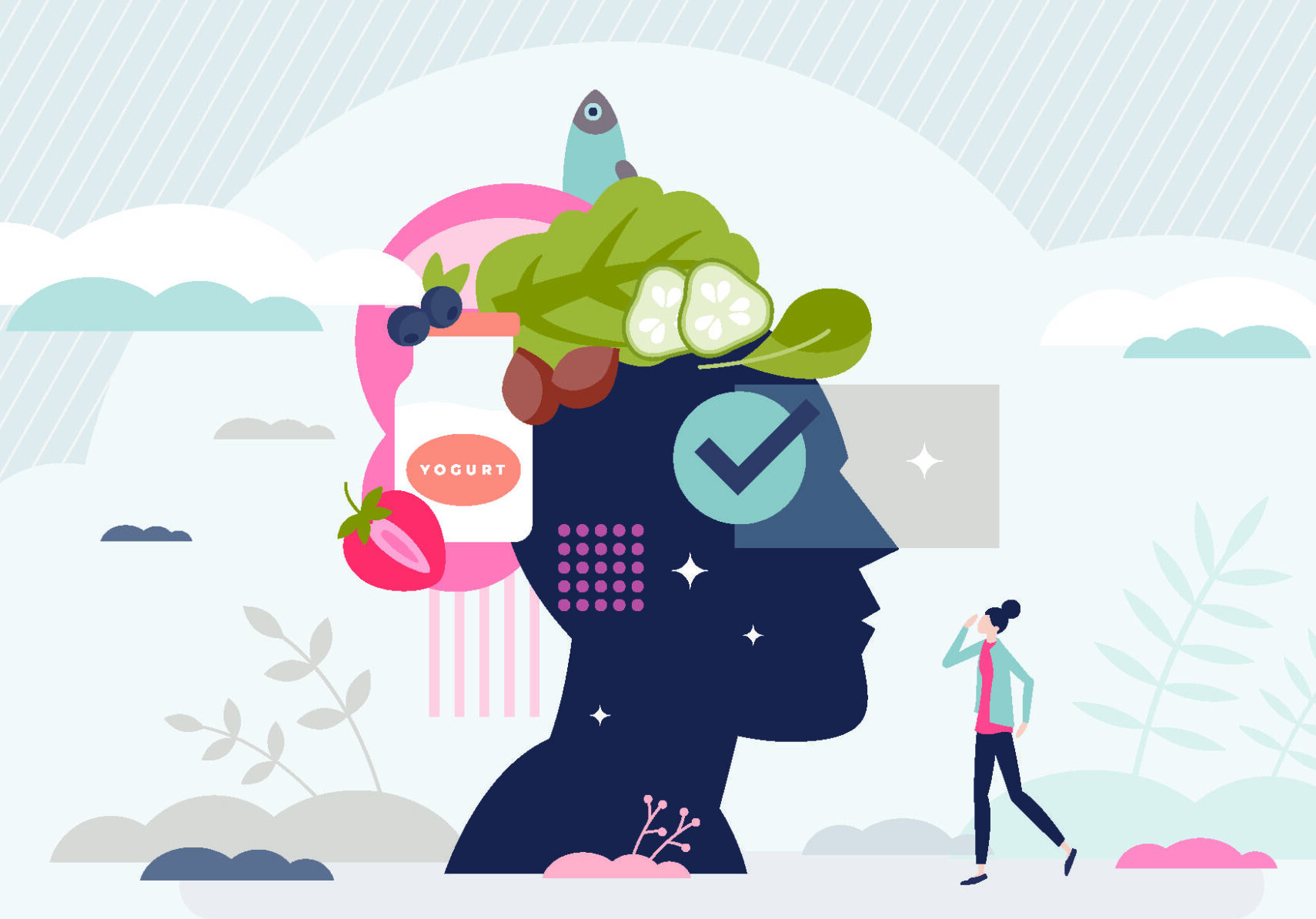by Reid Cannon
What we eat has a profound impact on how we feel mentally and emotionally. A balanced diet rich in nutrients like vitamins, minerals and antioxidants can significantly improve your mood, focus and overall well-being. There are some key foods that you can incorporate into your diet for better mental health.
Certain Foods Support Emotional Well-Being
Food supports emotional well-being in two main ways: through the provision of essential nutrients and by influencing our gut health, which can in turn impact mood. The food we eat supplies the building blocks for neurotransmitters, the brain chemicals that regulate mood, sleep and focus. For example, dark leafy greens are rich in B vitamins and folate, crucial for dopamine and serotonin production, promoting feelings of happiness and well-being.
A growing body of research suggests a strong link between the gut microbiome, the trillions of bacteria residing in our gut, and mental health. Fermented foods like yogurt and kimchi are rich in probiotics, live bacteria that contribute to a healthy gut environment. This, in turn, has been associated with improved mood and reduced anxiety.
Fatty Fish
Rich in omega-3 fatty acids, particularly EPA and DHA, fatty fish like salmon, mackerel and sardines are essential for brain health. Omega-3s play a crucial role in neurotransmitter function, which regulates mood and cognitive function. Studies have shown that consuming omega-3s can help reduce symptoms of depression and anxiety.
Dark Leafy Greens
Leafy greens like spinach, kale and Swiss chard are full of folate and B vitamins, which are vital for the production of neurotransmitters like dopamine and serotonin. These neurotransmitters are responsible for feelings of happiness and well-being, as well as regulating sleep patterns.
Berries
Berries are loaded with antioxidants, which can help protect the brain from oxidative stress and inflammation. Studies have linked berry consumption to reduced symptoms of depression and improved cognitive function.
Nuts and Seeds
Nuts and seeds are a great source of healthy fats, protein, fiber and B vitamins. They also contain minerals like magnesium and zinc, which are essential for neurotransmitter function and overall brain health.
Fermented Foods
Fermented foods like yogurt, kimchi and kombucha are packed with probiotics, which are live bacteria that benefit gut health. A healthy gut microbiome has been linked to improved mood and reduced anxiety symptoms.
Tips for Incorporating These Foods into Your Diet
Small swaps can make a big impact. You should also try to make the integration of emotionally supportive foods fun and flavorful. Additionally, planning and preparation are key. When you develop meal plans and prepare food ahead of time, it’s easier to get in those foods that support your emotional well-being.
Here are some tips to seamlessly integrate mood-boosting foods into your diet:
- Breakfast Upgrade: Ditch the sugary cereals for a protein and fiber-rich bowl of Greek yogurt with berries and nuts.
- Snack Smarter: Instead of chips, grab a handful of almonds, edamame or a sliced apple with almond butter.
- Grain Game: Swap refined white bread for whole-wheat options. This keeps you fuller for longer and provides sustained energy.
- Power Up Pasta: Opt for whole-wheat pasta and toss it with salmon, spinach, and a light tomato sauce for a complete and satisfying meal.
- Spice Up Your Life: Experiment with mood-boosting spices like turmeric and saffron. They add flavor and have potential benefits for brain health.
- Rainbow on Your Plate: Include a variety of colorful fruits and vegetables in your meals. They are not only visually appealing but also packed with mood-supporting vitamins and antioxidants.
- Get Creative with Salads: Salads don’t have to be boring! Add lean protein like grilled chicken or chickpeas, healthy fats like avocado, and a variety of veggies and fruits for a taste and nutrient explosion.
- Healthy Snack Hacks: Prepare healthy snacks in advance, such as portioned fruit cups with a dollop of yogurt or pre-cut veggies with hummus. This makes grabbing a healthy option convenient.
- Meal Prep Magic: Dedicate some time on weekends to prepping healthy snacks and chopped vegetables for easy access throughout the week.
- Befriend Frozen: Frozen fruits and vegetables are a lifesaver. They are readily available, affordable and retain most of their nutrients.
- Stock Up on Staples: Keep your pantry stocked with healthy staples like whole grains, nuts, seeds, canned beans and canned fish to whip up quick and nutritious meals.
Using Foods to Support Your Mental Health
Food can provide comfort and enjoyment, which can be a positive influence on emotional well-being. Sharing meals with loved ones or savoring a delicious dish can boost mood. However, a healthy diet is just one piece of the puzzle for emotional well-being. If you’re struggling with mental health concerns, seeking professional help from a therapist or psychiatrist is crucial.








Leave A Comment